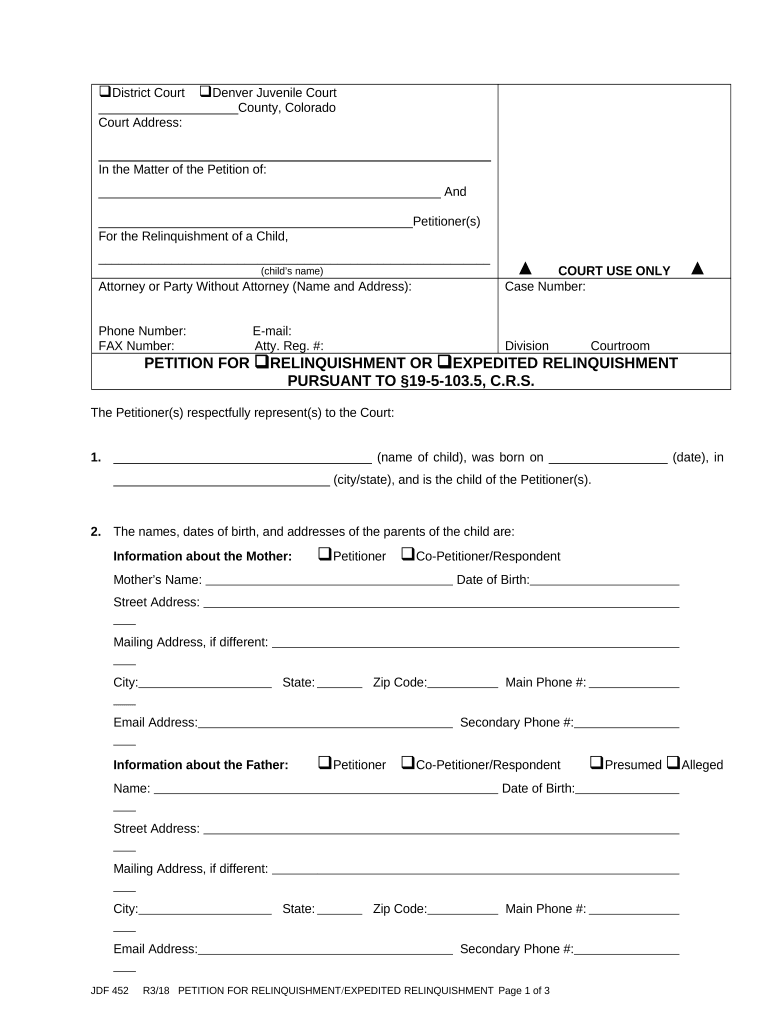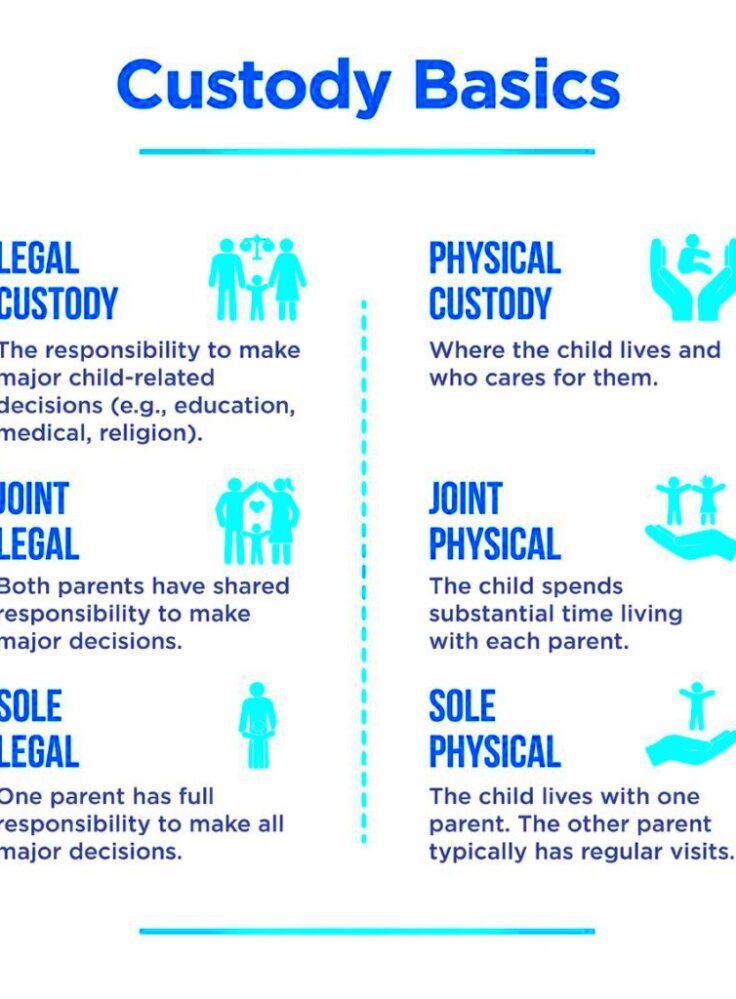Child Custody Laws for Unmarried Parents in Colorado
Dealing with custody issues can be challenging, especially for parents in Colorado who aren’t married. If you find yourself in this situation you might have questions about how the court will recognize your parental rights. Having been through a similar experience I understand how overwhelming it can be to navigate the legal system while trying to prioritize your childs well being. The silver lining is that Colorado has laws that safeguard the rights of both parents regardless of marital status. The crucial part is understanding what these laws entail and how they specifically relate to your situation.
How Colorado Defines Parental Rights for Unmarried Individuals

If you are a single parent in Colorado rest assured that your rights as a mother or father hold the same weight as those of married parents. It’s natural to think that being unmarried could impact your role in your child’s life but that’s not true. In Colorado both parents have equal rights when it comes to their children. However there are instances where parental rights need to be established particularly for fathers. I recall my cousin going through a situation where he wasn’t married to the mother of his child and had to legally assert his rights before having any say in decisions regarding his son.
When it comes to custody decisions the state prioritizes what’s best for the child. Unlike some states that lean towards granting custody to mothers if they are unmarried Colorado treats both parents equally from the start. The emphasis is on ensuring the child’s needs, safety and overall well being are met rather than favoring one parent over the other.
The Process of Establishing Paternity

Unmarried fathers might be taken aback by the process of establishing paternity. I witnessed this with my neighbor who had to navigate through legal hurdles to prove he was the dad. Unlike fathers who are presumed to be the child’s biological parent unmarried fathers must go through an additional step. This is where a “Voluntary Acknowledgment of Paternity” (VAP) comes into play. Both parents sign this form confirming that the man is indeed the biological father. Once that’s accomplished he gains the same legal rights as if he were married to the child’s mother.
In case of a disagreement things become more serious. A paternity test could be needed and the court will mandate one if deemed necessary. Once paternity is confirmed the father can request custody or visitation rights. Without that he won’t have much influence. I recall considering how challenging it must be to not receive recognition legally even though you are aware that you’re the father. However the paternity process safeguards that both parents have a vested interest, both legally and emotionally in their childs future.
Legal Custody vs Physical Custody: What Unmarried Parents Should Know
When it comes to custody it’s not just about who gets to spend time with the child. From my own experience grasping the distinction between custody and physical custody had a significant impact on my familys situation. Here’s what you should be aware of; Legal custody pertains to the ability to make decisions regarding aspects of your childs life like education, healthcare and religion. On the hand physical custody relates to where your child resides and the amount of time they spend with each parent.
For parents who aren’t married it’s vital to clarify the two types of custody. Many tend to prioritize custody determining who gets to spend time with the child on weekends or holidays but legal custody holds significance as well. Picture this scenario; a mother may have the child reside with her, full time but if the father possesses legal custody he retains the authority to make decisions regarding the child’s education and healthcare. Striking this balance can be crucial for ensuring that both parents stay actively engaged in their child’s life regardless of their living arrangements.
Here’s a quick rundown of the two types:
- Legal Custody: Involves decision-making about the child’s education, health, and welfare.
- Physical Custody: Refers to the child’s living arrangements and visitation schedules.
Unmarried parents should have conversations and come to an agreement on these matters, otherwise the court will make a decision based on what it believes is best for the child. Having experienced this personally I recognize how crucial it is for parents to be clear and communicate effectively to ensure that choices are made, with the childs welfare in mind.
Factors Colorado Courts Consider When Determining Custody
When Colorado courts make custody decisions they prioritize the childs well being over the parents preferences. I have witnessed this personally through friends who have navigated custody disputes. The judges consider various aspects to assess what will offer the child the utmost stability and support.
Here’s a summary of the key factors:
- Best Interest of the Child: The primary consideration is always what is best for the child’s overall well-being.
- Parental Ability: Courts evaluate each parent’s ability to provide a stable environment, including their mental and physical health.
- Child’s Relationship with Each Parent: How strong the bond is between the child and each parent can play a crucial role.
- Child’s Adjustment to Home and School: The court considers how well the child is adapting to their current home and school environment.
In my view, a crucial factor is the way parents can meet their childs emotional and physical needs. The courts goal is to create a stable and caring setting for the child, which typically involves sharing time and responsibilities between both parents.
Child Support Responsibilities for Unmarried Parents
When it comes to child support unmarried parents should have a clear understanding of their obligations. I recall a friend of mine going through a tough time with this issue after his separation. Its crucial to recognize that both parents are obligated to share in meeting their childs financial needs regardless of whether they are married or not.
In Colorado the determination of child support takes into account several factors such as
- Income of Both Parents: The amount of support is typically calculated based on the incomes of both parents.
- Child’s Needs: This includes necessities like food, clothing, and medical expenses.
- Parenting Time: The amount of time each parent spends with the child can also influence the support amount.
Child support should be handled in a way that is fair and accountable. Based on my own experiences making sure that both parents play their part in taking care of a childs needs can create a nurturing and supportive atmosphere for the child. Open communication and a mutual understanding of each parents financial obligations can greatly ease the process of navigating this crucial aspect of parenthood.
Modifying Custody Agreements in Colorado
Life can be full of surprises and there are times when even the most carefully planned custody arrangements need to be changed. I have witnessed many friends and family members encounter this situation. In Colorado changing a custody agreement is not an automatic process; it involves navigating through the legal system. If your situation changes, whether it’s because of a job move, relocation or shifts in your child’s needs you may find it necessary to pursue an adjustment to the current custody order.
The process generally involves:
- Filing a Petition: You’ll need to file a petition with the court requesting a modification. This petition should clearly explain why the current arrangement isn’t working and what changes you’re seeking.
- Providing Evidence: The court will require evidence to support your request. This might include documentation of changes in circumstances or how the current arrangement affects the child.
- Review by the Court: A judge will review the petition and evidence. If they believe the modification is in the child’s best interest, they may approve the changes.
Based on what I’ve seen it’s important to handle this situation with care and consideration. The priority should always be doing what’s best for the child. I recall a coworker who managed to adjust his custody arrangement by demonstrating how the change would positively impact his daughters education and overall health. This served as a reminder that although making changes can be tough they are often essential to adapt to the changing needs of a child.
FAQ About Child Custody for Unmarried Parents in Colorado
Understanding child custody laws can be tricky, particularly for parents who aren married. Drawing from the inquiries I’ve come across from friends and relatives here are some common questions and their responses.
- Q: Do unmarried parents have the same custody rights as married parents?
A: Yes, unmarried parents have the same rights. The key difference is that unmarried fathers may need to establish paternity to be recognized legally. - Q: How can I establish paternity in Colorado?
A: Paternity can be established through a Voluntary Acknowledgment of Paternity form or, if necessary, through a court-ordered paternity test. - Q: Can custody agreements be changed?
A: Yes, custody agreements can be modified if there is a significant change in circumstances and if the modification is in the best interest of the child. - Q: How is child support determined for unmarried parents?
A: Child support is calculated based on the income of both parents, the child’s needs, and the amount of time each parent spends with the child.
These responses are drawn from shared experiences and scenarios that I have come across. Being aware of your entitlements and obligations can help ease the journey and reduce stress.
Conclusion: Key Takeaways on Child Custody Laws for Unmarried Parents in Colorado
Dealing with custody matters as unmarried parents in Colorado can be tough. However having a good grasp of the details can really make a difference. It’s important to understand the difference between custody and physical custody and also know how to go about changing custody arrangements if needed. Staying informed and taking action is key. From my own experiences I’ve learned that even though the road may be challenging keeping the focus on what’s best for the child and being clear about your rights and obligations can help you navigate the system more smoothly.
It’s important to note that both parents share rights and obligations. Open communication and fairness can greatly benefit your childs life. Whether you’re navigating paternity establishment, modifying an agreement or addressing child support matters prioritizing the childs well being in every decision is crucial for achieving a custody arrangement.


